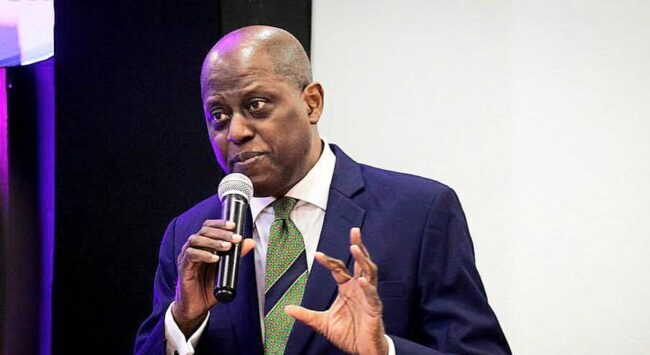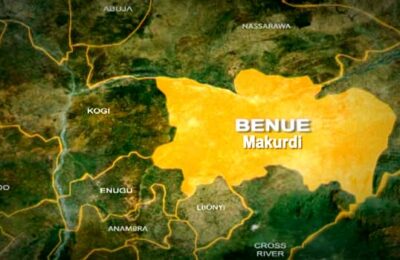
The Central Bank of Nigeria has disclosed that unknown to most Nigerians, before foreign Exchange reforms the cost of the FX subsidy regime was higher than that of fuel subsidies.
Specifically, the Central Bank said in 2022 alone, the potential revenue lost due to a less flexible FX regime was approximately ₦6.2 trillion, compared to ₦4.5 trillion from fuel subsidies. These funds it added, could have significantly contributed to critical investments in education, healthcare, and infrastructure development.

The CBN governor, Yemi Cardoso, who made the disclosure on Friday in Lagos at the bankers added that in the foreign exchange market, there was a backlog of over $7 billion in unfulfilled commitments and a fragmented FX regime characterized by multiple forex rates, which encouraged arbitrage opportunities.
This regime according to him, stifled much-needed foreign investment and led to the depletion of Nigeria’s external reserves, which fell to $33.22 billion in December 2023.
But due to guided reforms initiated under his leadership, Cardoso said foreign portfolio inflows have increased by over 72 percent during this period, while foreign exchange reserves have risen from $32 billion in May 2023 to over $40 billion today.
This represents the equivalent of eight months’ import cover and marks the highest reserve level in nearly three years.
According to him, the market has also supported over $9 billion in capital outflows over the past year, allowing investors to transact without the prolonged delays experienced in the past.
“These results reflect improved confidence in the reforms we have embarked on. Additionally, we witnessed a $6 billion current account surplus in the first half of 2024 as a result of these reforms. Reduction in petroleum product imports, supported by improved domestic refining capacity, a growing focus on non-oil exports, and higher remittance inflows helped sustain the positive current account balance, “ he stated.
To further enhance confidence in the payment system, the CBN governor said he will revisit the electronic naira (e-Naira), an initiative started under the past administration.
He also assured that the Payment System Vision 2025 initiative will drive efforts to encourage quick and affordable cross-border payments, a critical step toward unlocking trade, investment, and economic growth.
“ Additionally, the e-Naira, our Central Bank Digital Currency (CBDC), holds significant growth potential. We will therefore undertake a comprehensive review of its implementation to optimize its broad and positive economic impact.
“In 2025, we will prioritize initiatives such as implementing our open banking framework, advancing contactless payment systems, and expanding our regulatory sandbox. We will also issue revised guidelines for agency banking and continue to strengthen electronic payment channels.
“We are committed to further integrating the Nigerian diaspora into our financial system, exemplified by the introduction of the non-resident Bank Verification Number (BVN) registration. “We expect our financial institutions to develop products that not only enable the diaspora to support their families but also provide opportunities for savings and investment in Nigeria,” Cardoso emphasized.
Upon assuming office in October 2023, Cardoso recalled, the CBN prioritised reforms to rebuild Nigeria’s economic buffers and strengthen resilience. Inflation, which had surged to 27 percent, was one of the most pressing challenges, partly driven by excessive money supply growth.
While Nigeria’s Gross Domestic Product (GDP) growth had stagnated at a meagre 1.8 percent over the previous eight years, money supply expanded rapidly, averaging about 13 percent growth annually.
This imbalance not only fueled inflation but also contributed to a significant depreciation of the naira.
“As we all know, inflation creates uncertainty for households and businesses, acting as a silent tax by eroding purchasing power and driving up living costs.
“The nation was also grappling with a fiscal crisis, marked by unsustainable deficit financing through the Central Bank’s Ways and Means advances, which had reached an unprecedented N22.7 trillion by 2023—equivalent to almost 11 percent of our GDP. In addition, quasi-fiscal interventions by the CBN, totaling over N10 trillion, undermined market confidence and weakened the effectiveness of our policy tools, “he recalled stressing that
these actions shifted focus away from our primary responsibility—maintaining price stability.
They compromised transparency by bypassing essential oversight mechanisms, which are vital for accountability. Moreover, they strained monetary stability, contributing to inflationary pressures and market distortions.
His words: “Under my leadership, we have taken decisive steps to move away from these practices. We have ended years of fiscal deficits financed through CBN’s Ways and Means advances, reinforcing our commitment to price stability and promoting fiscal discipline.
“To tackle the pressing challenge of inflation, the CBN acted decisively by raising the Monetary Policy Rate by 875 basis points to 27.5 percent in 2024—an essential move to contain inflation and restore stability.
“I fully recognize the challenges that higher interest rates impose on businesses and families. However, these measures are not intended to be permanent. We are closely monitoring the data, and as inflation shows sustained signs of improvement—something we expect shortly—we will adjust rates accordingly.”
READ ALSO: Banks recapitalisation will support $1trn economy by 2030 — Cardoso








